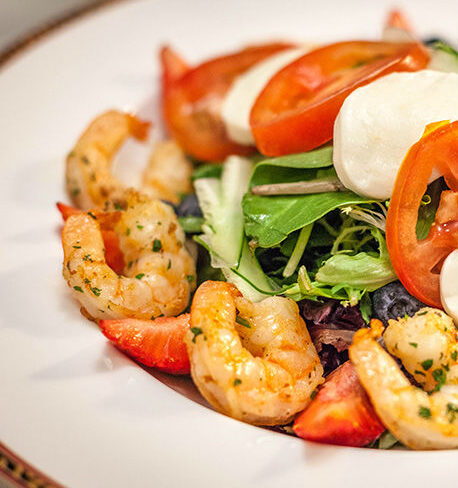<!–[CDATA[
Can the foods you choose help prevent Alzheimer’s and dementia? Some research suggests that eating the right foods in healthy amounts may delay the onset of Alzheimer’s and dementia.
A few key factors contribute to preventing dementia through diet including:
- Reducing beta-amyloid plaques that form in the brain and may lead to dementia
- Preventing brain inflammation
- Protecting the brain’s glial cells, which remove debris and toxins from the brain
Which foods do this best?
Choose a Diet Rich in Fish-based Omega-3 Fatty Acids
Some scientific evidence suggests that people with high levels of Omega-3 fatty acids in their blood may be at a lower risk to develop Alzheimer’s disease.
Omega 3’s, namely the long-chain fatty acids known as DHA and EPA, may reduce the development of beta-amyloid plaques in the brain while also reducing inflammation.
Cold water fish like salmon, tuna, trout, mackerel, and sardines are high in these fatty acids, but you can also supplement with fish oil pills.
Eat Walnuts and Flaxseed for ALA Fatty Acids
Another form of Omega-3’s, ALA fatty acids, also play a role in maintaining healthy brain function.
A 2014 study showed that mice who ate a diet rich in walnuts exhibited “significant improvement in learning skills, [and] memory.”
You can also find ALA Omega-3’s in flaxseed, an easy-to-eat food that adds fiber when blended into smoothies. It also provides a pleasing texture when sprinkled on top of Greek yogurt.
Eat Dark Berries to Protect Glial Cells
Evidence shows that ginger and berries – including blackberries and blueberries – can help protect the brain’s glial cells. These are the non-neuronal cells that make up 90 percent of the brain’s tissue and help protect the nerve cells from damage.
Use Ginger to “Spice Up” Neurotransmitter Activity
Ginger root also provides the same protective benefits for glial cells, while also increasing acetylcholine activity in the brain. This assists in maintain memory and learning skills. Additionally, ginger inhibits the production of acetylcholinesterase, the enzyme that breaks down acetylcholine. Today’s Alzheimer’s drugs work in the same way, but ginger can do it naturally with no side effects.
Ginger has other benefits, too. A strong antioxidant, it prevents the formation of free radicals and reduces inflammation – both factors in aging.
Keep Blood Sugar in Check by Avoiding Sugar and Fast-burning Carbohydrates
Eating a diabetic friendly diet, very low in sugar, with a balance of slow-burning carbohydrates (whole grains, vegetables and protein) at every meal can help reduce the risk of type-2 diabetes.
Some studies have shown a link between high blood sugar and Alzheimer’s disease.
Eat Leafy Green Vegetables
Some studies show that eating just one serving of kale, spinach, or other leafy green vegetables a day may help slow cognitive decline, some studies show. Scientists attribute the results to the folate, beta-carotene, and vitamin K found in these vegetables.
A Healthy Diet Is Good for Your Brain
If these foods all sound like the same foods recommended for most healthy diets, that’s because they are. Fortunately, a diet rich in antioxidants and healthy fats, while low in sugar and empty calories is good for your heart, your waistline and your brain.
The dining experience at Five Star Senior Living communities is like no other. Thanks to our Five Star Executive Chefs, meals are similar to what you would find in a fine dining restaurant.

